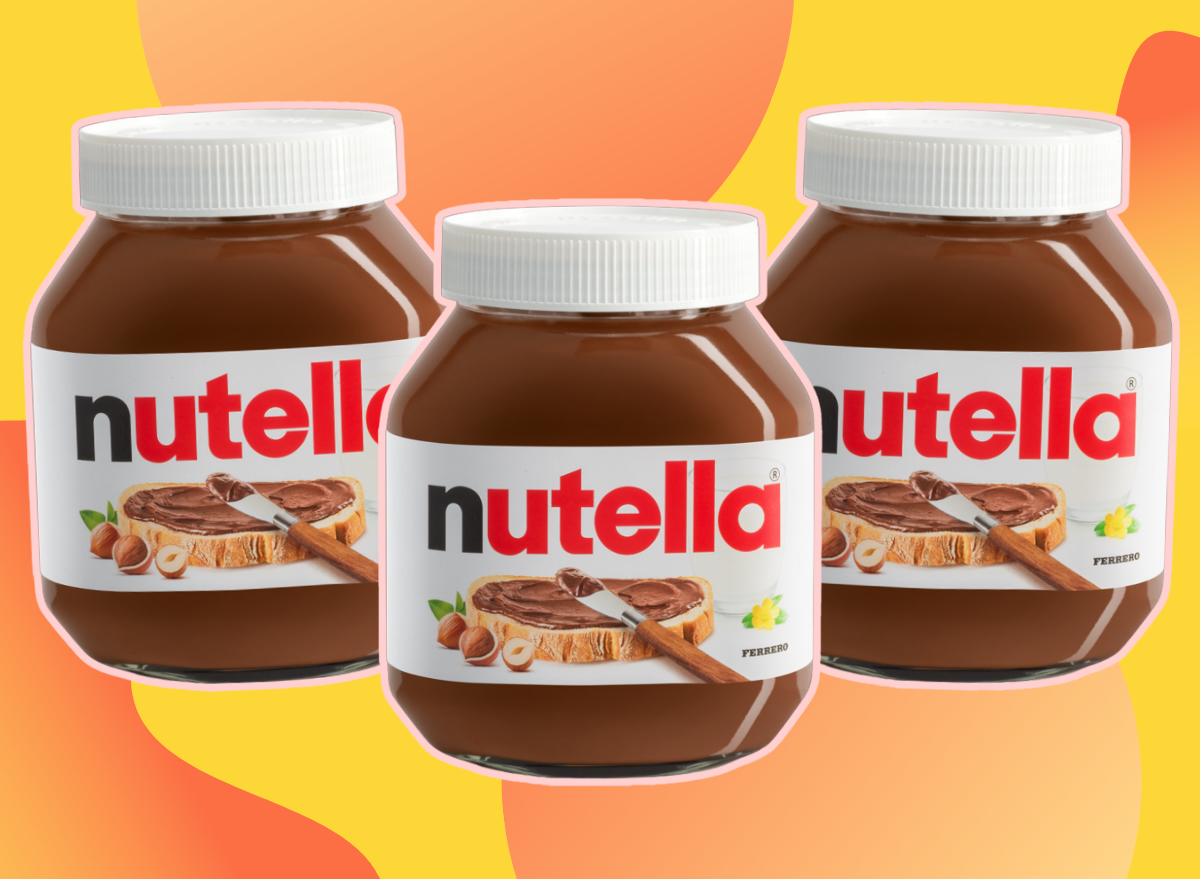Despite its indulgent flavor, many perceive Nutella as a healthier treat due to its simple, real-food ingredients like hazelnuts. Often enjoyed on bread, waffles, pancakes, and as a filling in pastries and desserts, Nutella has taken the world by storm after becoming popular in Italy. Yet, is Nutella really healthy?
Let’s examine the nutrition label and consider the pros and cons of this creamy, chocolaty hazelnut spread. Read on, and for more guidance on what you should be purchasing, check out 15 Healthiest Nut Butters on Grocery Shelves.
What is Nutella? Nutrition & Ingredients

Nutrition (Per 2 tablespoons, 37 grams):
Calories: 200
Fat: 11 g (Saturated fat: 3.5 g)
Sodium: 15 mg
Carbs: 22 g (Fiber: 1 g, Sugar: 21 g)
Protein: 2 g
Nutella is a popular hazelnut and cocoa spread produced by Ferrero in Italy. It is known for its smooth texture and sweet, chocolatey taste. People enjoy it on bread, waffles, pancakes, and desserts.
Its seven ingredients include sugar, palm oil, hazelnuts, skim milk, cocoa, lecithin, and vanillin (an artificial flavor).
Potential Benefits of Nutella
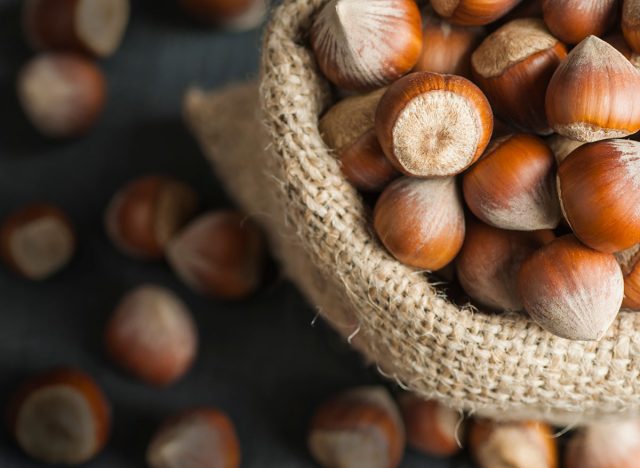
Nutella has a few health benefits, as it is made with simple ingredients like hazelnuts and milk products. Hazelnuts are rich in healthy fats, antioxidants, vitamins, and minerals. Plus, flavored with cocoa, Nutella also contains flavonoids, which are heart-healthy antioxidants.
With 11 grams of fat per 2-tablespoon serving, Nutella mostly contains monounsaturated fats from hazelnuts. It is also low in sodium and offers one gram of fiber per serving.
Potential Drawbacks of Nutella
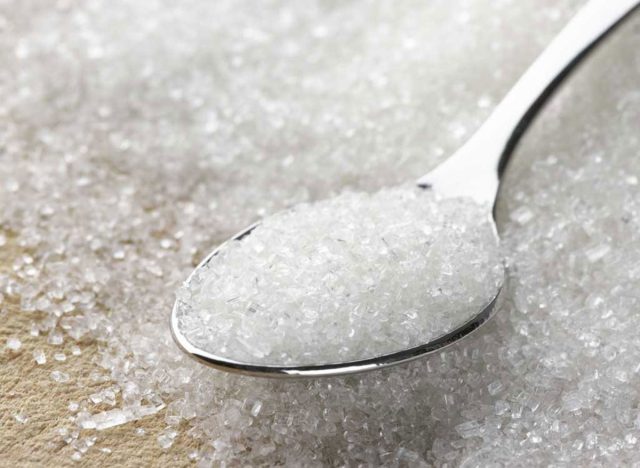
On the other hand, Nutella is also high in added sugars and contains some saturated fat from Palm oil. Like all nut butter, Nutella is a rich source of calories for a small serving size. With 200 calories per two-tablespoon portion, it’s easy to overdo and take in more calories than you realize.
Excess added sugar in your diet can negatively affect cardiovascular disease and other metabolic conditions, as we saw in an umbrella review of 8,601 articles in the British Medical Journal. According to the American Heart Association, the recommended daily allowance for added sugar is 24 grams daily for women and 36 grams for men. For women, this is almost all of the recommended daily allowance.
Plus, the combination of sugar and fat in Nutella can make it highly palatable and potentially easy to overconsume. Often, you will find Nutella in desserts and snacks that are also high in added sugar, which can contribute to your total daily allowance and possibly overshoot it. While these choices won’t harm your health from time to time, if you’re regularly consuming Nutella thinking it’s a healthy snack, you may want to rethink that choice.
Conclusion: Is Nutella Healthy?
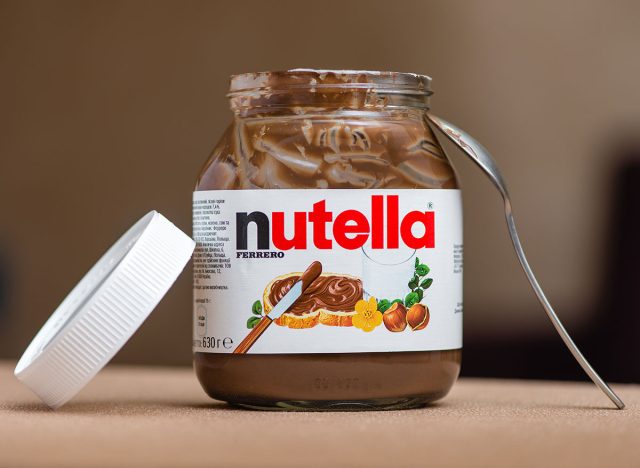
Nutella can be enjoyed as a delicious, healthier treat, but it is not exactly considered a health food. While it contains some beneficial ingredients like hazelnuts and cocoa, these might be outweighed for some by the sugar and calorie content. We recommend consuming Nutella in moderation or balancing it with other foods with fiber to stay full longer.
Healthier Ways to Enjoy Nutella
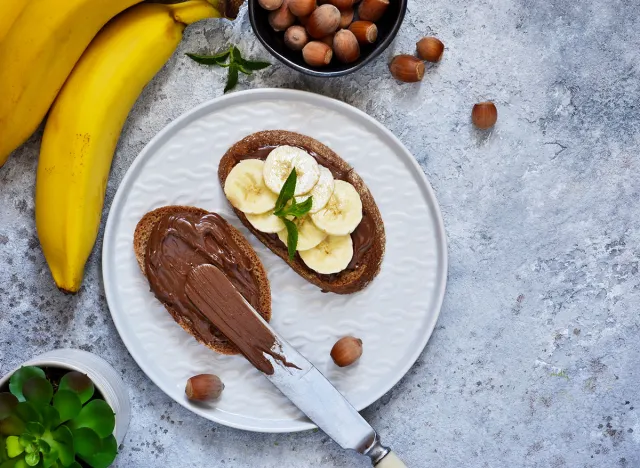
Choosing Nutella can be healthy if you consider the serving size or how you pair it with other foods. Here are some ideas for making Nutella more balanced.
- Portion Control: Stick to the recommended serving size to enjoy the taste without overindulging. Mix up your nut butter by choosing other options in addition to Nutella to get a variety of nutrients and fewer added sugars.
- Pair with Nutritious Foods: Spread Nutella on high-fiber foods like whole-grain bread or use it as a dip for fresh fruits to add more filling nutrition to this meal.
- Use as a Treat: Choose Nutella when you want it, but consider it an occasional treat rather than a regular part of your diet.
Caroline Thomason, RDN, RD, LDN, CDCES

